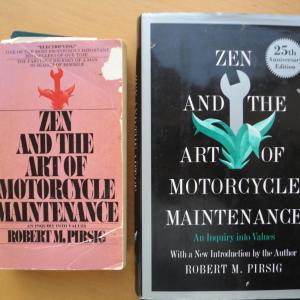Cumberland Tour
Consider this a meditation on being from Generation X and growing up before the internet. Having watched a number of video accounts of bicycle trips along the Potomac River, I decided to dig up my own account; it is from twenty-eight years ago and is entirely verbal. I originally wrote it day by day with ballpoint pen in a composition book.
I had no plans for what I wrote, beyond informing myself for future trips. Nonetheless, my Uncle Bill used to talk about his friend Barry, whose failure to keep a diary may have kept him from writing a good book, at least in Bill’s judgment. The topic would have been the Presidential campaigns that Barry had covered for CBS News. They had all been losing.










